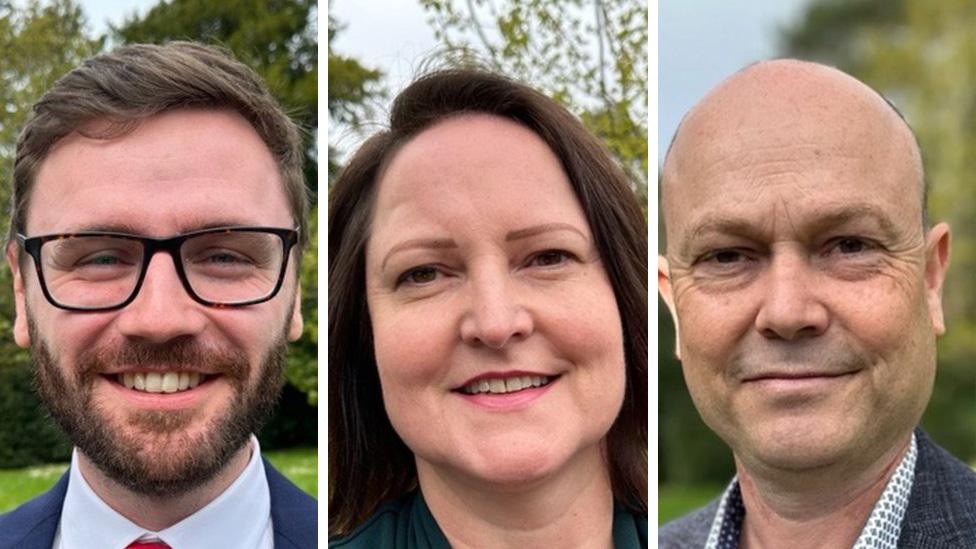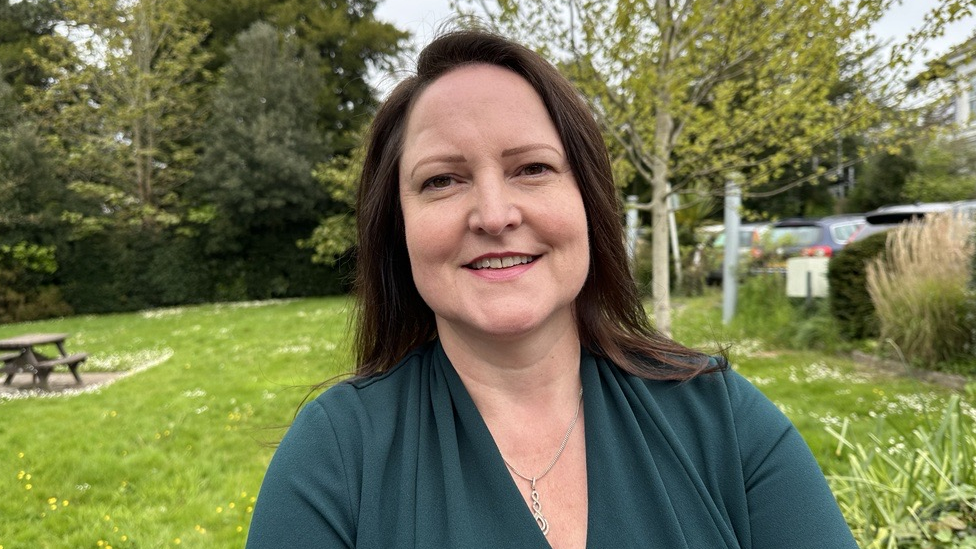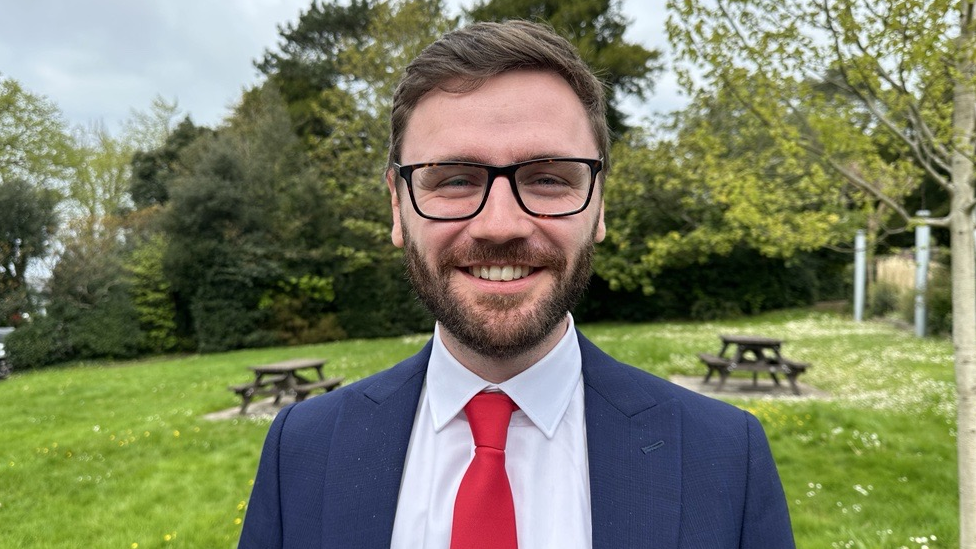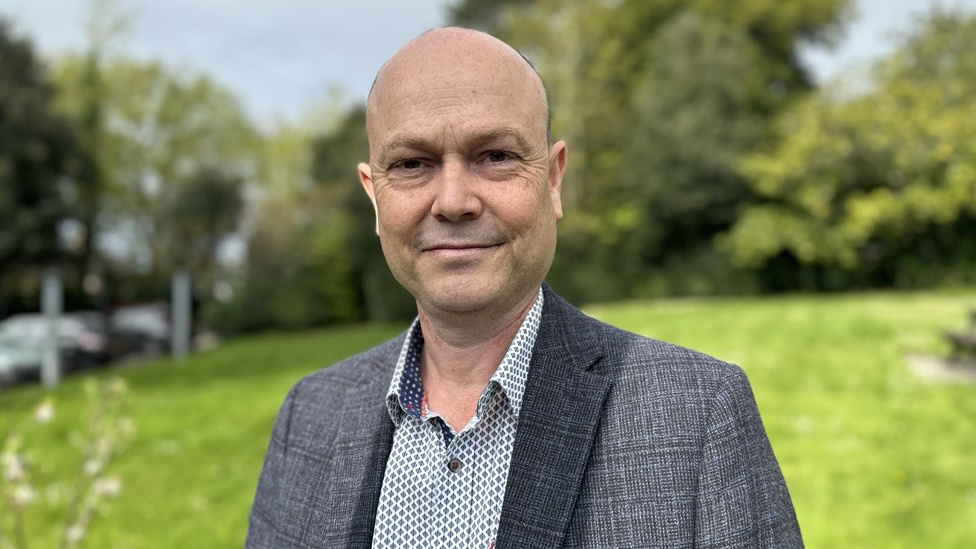Police and crime commissioner candidates in Devon and Cornwall
- Published

The three candidates for the upcoming police and crime commissioner election sat down to debate key issues on Radio Devon and Radio Cornwall
On 2 May the police and crime commissioner (PCC) election will take place in Devon and Cornwall.
The candidates are Alison Hernandez (Conservative), Daniel Steel (Labour and Co-operative) and Steve Lodge (Liberal Democrat).
The first PCCs were elected in 2012 in Wales and most of England.
PCCs are elected officials whose role is to help ensure police forces function effectively, but not to run those forces themselves.
They hold police forces to account, scrutinise their performance on behalf of the public they serve.
They also set the annual budget for their force and oversee community safety, set out force strategy and policing priorities in a Police and Crime Plan.
Anti-social behaviour - a key issue
In debates held on Radio Devon and Radio Cornwall, the three candidates discussed some of the key issues affecting the region, as well as answering questions from the public.
One of those issues was anti-social behaviour and how it impacts communities across the region.
Alison Hernandez, who has been elected in the previous two elections and has served eight years in the role, said during her campaigning in the lead up to the election, anti-social behaviour had been a "top issue" on the doorstep.
She said: "We've also got at the moment, an extra £1m from the government to do anti-social behaviour hotspot policing that started in April.

Conservative candidate Alison Hernandez was elected as the PCC in the last two elections - and has been in the role since 2016
"I was in Camborne yesterday, people told me that they'd noticed the police officers out and about now, so we are trialling hotspot policing in certain geographies... I will want to really see a difference being made with that."
The Conservative candidate said the biggest issue was "a lack of punishment" for people carrying out anti-social behaviour.
"We have stopped criminalising people, young people in particular, because the academic research shows that is bad for them, and that they will become criminals for the rest of their life if they do it, but they're getting away with it.
"This is why the drug dealers recruit under-18 children to be their couriers, because they know those young people will get away with it."
Labour candidate Daniel Steel said tackling anti-social behaviour was a "really important issue" and one he had been hearing a lot about from people across the region during his campaign.

Daniel Steel is the Labour Party candidate for the PCC election
"That's why my top priority is about putting back community policing at the heart of our villages, towns, and cities - so no part of our region is left behind."
Mr Steel said there had been "savage cuts" to neighbourhood policing over the last decade.
He said: "Back in 2012, there were nearly 900 neighbourhood police officers and PCSOs in Devon and Cornwall... that has now been cut down to 463. We've only got 150 PCSOs for the entirety of the region working on neighbourhood policing. That's less than one PCSO per 10,000 residents, that's why it's been stretched to breaking point.
"That's why Labour's pledging to put the police back on our streets, to be able to be the preventative force that tackles anti-social behaviour."
Liberal Democrat candidate Steve Lodge said anti-social behaviour was the "number one issue" he had heard about in a public survey he was running.

Steve Lodge is the Liberal Democrat candidate in the PCC election
He said: "I think there's a huge amount of public confusion, I think people used to know what an ASBO (Anti-social Behaviour Order) was, but now there are all sorts of things - several injunctions, community protection notices, criminal behaviour orders.
"People don't know whether they should ask the council to deal with these, they don't know if they ask the police to deal with these, and a lot of the time the police don't know who deals with it and the council don't know who deals with it, because they're referring things to each other."
Mr Lodge said "we do need more neighbourhood policing teams" in Devon and Cornwall.

Follow BBC Devon on X (formerly Twitter), external, Facebook, external and Instagram, external. Follow BBC Cornwall on X (formerly Twitter), external, Facebook, external and Instagram, external. Send your story ideas to spotlight@bbc.co.uk, external.
- Published7 May 2024